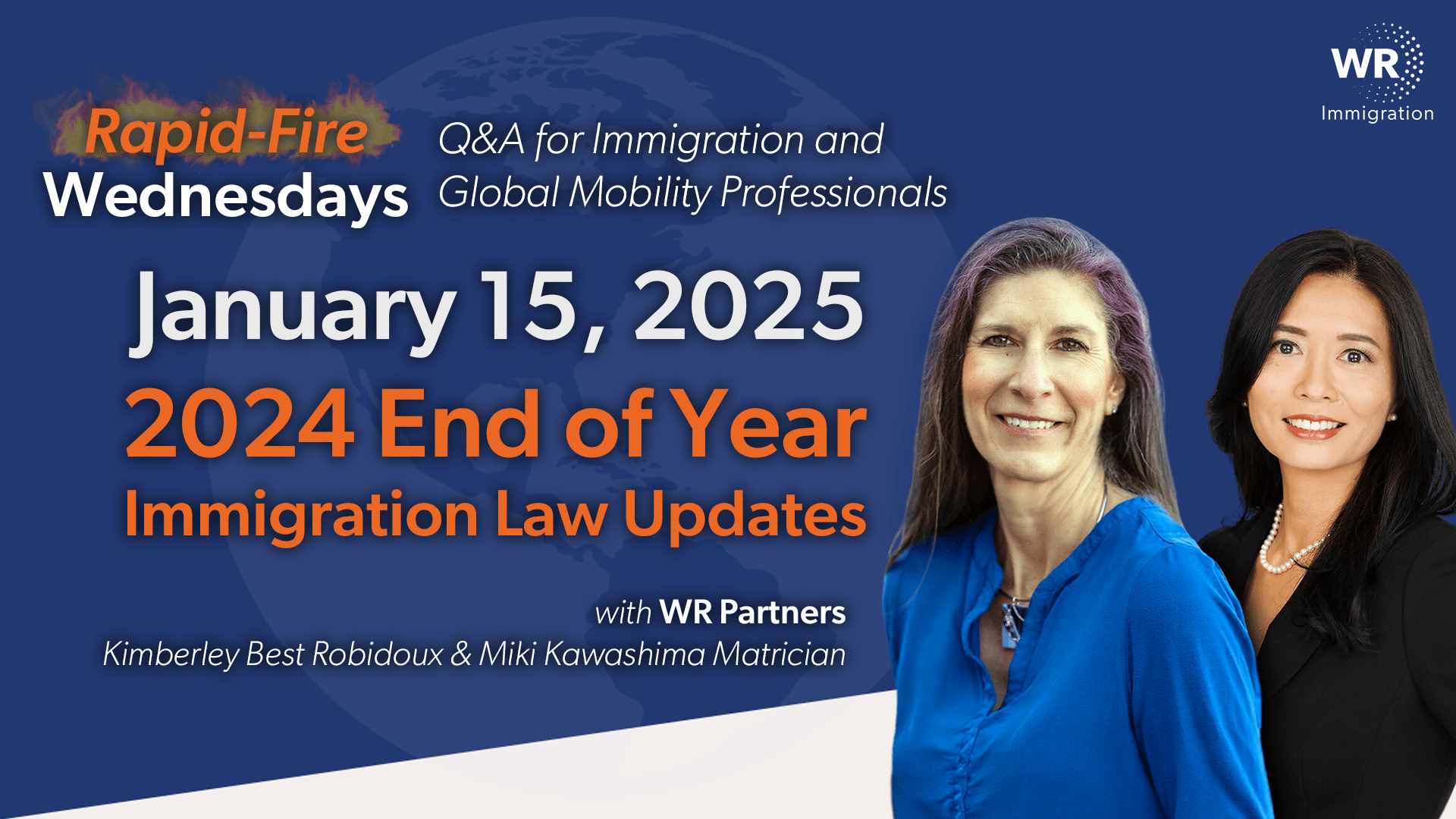The transcript version of our weekly Q&A livestream for corporate immigration professionals. Join our Immigration News Digest Newsletter for more immigration updates.
By Kimberley (Best) Robidoux & Miki Kawashima Matrician
🔥 Question: What changes did the U.S. Department of State make to the J-1 Exchange Visitor Skills List?
Response: The Department of State made a significant update to the J-1 Exchange Visitor Skills List, which had not been revised since 2009. Effective December 9, 2024, 37 countries were removed from the skills list, including Brazil, China, India, and South Korea. This change is retroactive, meaning individuals from these countries who were previously subject to the two-year home residency requirement are no longer restricted, even if they were in the J-1 program when the requirement applied. As a result, these individuals can now pursue U.S. visas like H-1B, L-1, or green cards without delay. This update benefits employers by making it easier to retain talent without requiring waivers or a mandatory return to the home country. However, the two-year residency requirement remains unchanged for foreign national physicians undergoing medical residency or graduate medical education.
🔥 Question: What is the new policy regarding medical examination results for Form I-485 Adjustment of Status Applications?
Response: USCIS announced a policy change regarding Form I-485 applications for adjustment of status. Previously, applicants could submit their medical examination results at any time while their application was pending, often in response to a Request for Evidence (RFE) or during a USCIS interview. However, effective immediately upon the announcement in November, USCIS now requires medical examination results to be included with the initial filing of Form I-485. This change caught many off guard, as it reverses the more flexible approach previously in place and requires applicants and employers to adjust their filing strategies.
🔥 Question: What is the new rule regarding Employment Authorization Document (EAD) automatic extensions?
Response: A new USCIS regulation makes the 540-day automatic extension for expiring EADs permanent. This is a significant improvement over the previous 180-day extension, which often was insufficient for USCIS to process renewal applications and issue the EAD cards timely. The longer extension provides more certainty for employees and employers, reducing the frequency of Form I-9 updates and minimizing the risk of work authorization gaps due to backlogs. However, it’s important to note that the 540-day extension does not apply to all EAD categories. For example, DACA recipients are not eligible for the automatic extensions. F-1 STEM OPT extension applicants are still subject to the 180-day extension limitation. Employers are encouraged to monitor EAD expiration dates and remind employees to file renewals well in advance to avoid potential disruptions.
🔥 Question: What should employers know about I-9 compliance in light of these changes?
Response: From an I-9 compliance perspective, the permanent 540-day EAD extension allows employers to update Form I-9 less frequently, easing administrative burdens. Employers should check the M-274 Handbook for Employers and I-9 Central periodically for updates, as relying on a static PDF version may result in outdated information. Additionally, employers should be mindful of specific EAD categories that do not qualify for the 540-day extension, such as DACA and F-1 OPT. Tracking EAD expiration dates and reminding employees at least six months in advance can help prevent work authorization gaps.
Send us your questions via DM or using the below link!
HR Question Submission Form | Rapid-Fire Wednesdays
See you next week!


